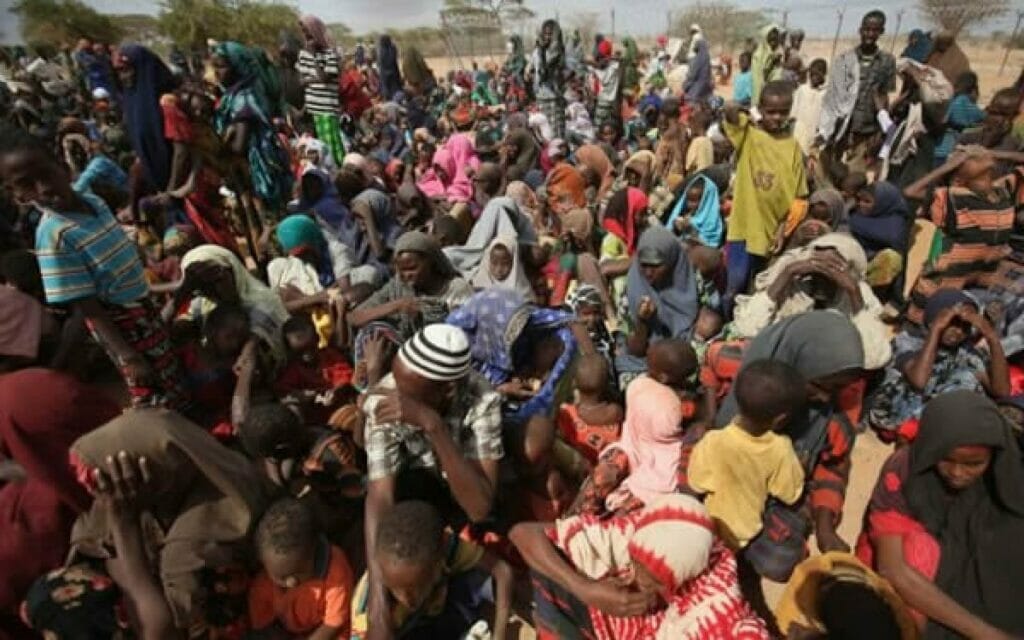Hajiya Sadiya Umar Farouq, Minister of Humanitarian Affairs, Disaster Management, and Social Development, said on Thursday that Nigeria has a total of 2,583,000 internally displaced persons (IDPs) as a result of violence and conflicts.
The Minister made the announcement in Bauchi during the launch of a psychological support and empowerment program for 51 chosen IDPs in Bauchi State.
According to Farouq, there are around 40 million displaced people worldwide, with Nigeria accounting for 2,583,000 IDPs.
“As at January 2020, Nigeria had a total of 2,583,000 IDPs due to violence and conflict out of the 40 million displaced persons (worldwide),” the minister disclosed.
The minister, who was represented by the Director, Social Development in the ministry, Sule Aliyu, Farouq regretted how violence and conflicts have impacted negatively on basic social and economic activities in various communities, which she said made the needs for humanitarian action inevitable.
According to the minister, a direct effect of violence and conflict was displacement of affected individuals, which she said always came along with its trademark of trauma and other social issues that had a lot of impact on the mental health of the affected persons.
Speaking on the psychosocial support and empowerment programme, the minister informed that it was one of the mandates of her ministry, including implementation of fair focused social inclusion programmes in the country.
She explained that the participants drawn from affected local government areas of Bauchi State would be trained in marketable skills, including tailoring, soap making, vulcanising, baking, fish farming, lotion making, bead making and shoe making or any other marketable skills available within their locality.
“The aim of this programme is to return the affected persons to their normal lives and familiar routines that engage their mental abilities to the understanding that life is gradually normalising with a view to being empowered economically to help in meeting their family needs as they exit the camp,” the minister said.
She added that the programme is also meant “to give IDPs opportunities to take care of their own livelihood that will contribute to strengthening their psychosocial wellbeing and ease the stress they are experiencing”.
Also speaking at the event, the Bauchi State Commissioner for Women Affairs, Hajiya Hajara Gidado, explained that the programme was targeted at participants who were most vulnerable IDPs scattered in different camps in 19 out of the 20 local government areas of the state.
Represented by the ministry’s acting Permanent Secretary, Muhammed Aliyu, the commissioner said the programme would assist the state government’s efforts towards revamping the society and reducing pressure of conventional employment responsibility.
In his remark, the chairman of IDPs in the state, Musa Shehu, appealed for more support for internally displaced persons in the state from the Federal Government to enable them to return to normal life.
While informing that there are between 56,000 and 70,000 IDPs in the state, Shehu declared that they needed more of such psychosocial and empowerment programmes for them to be self-reliant.

